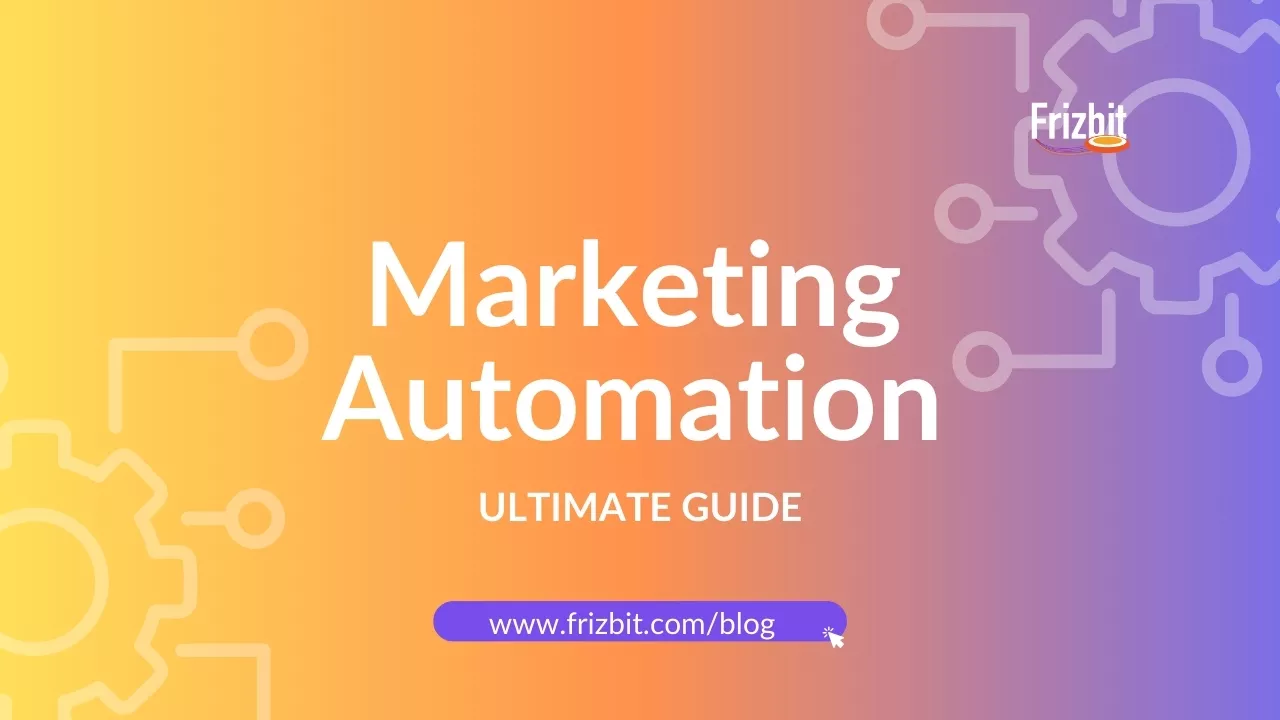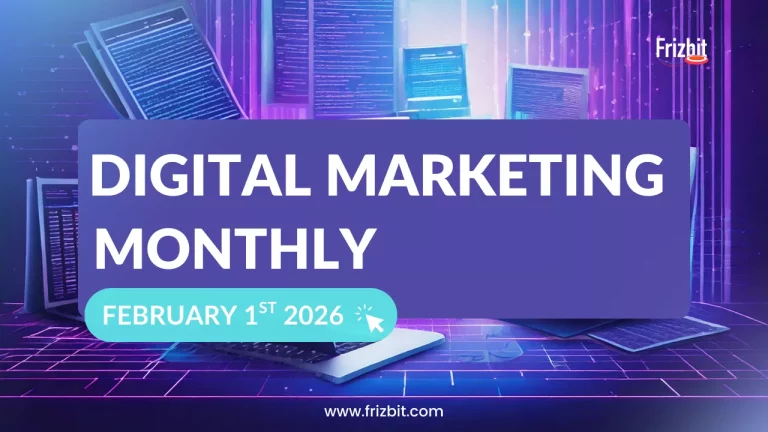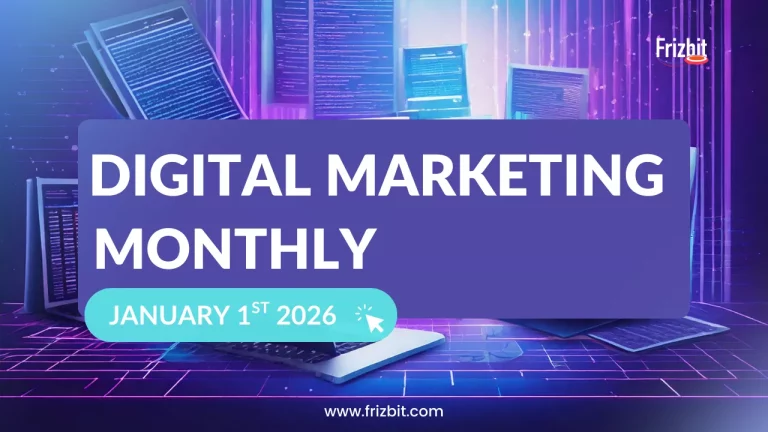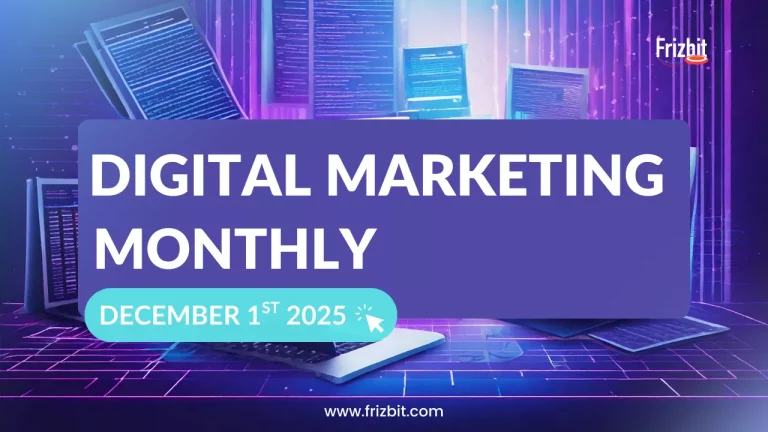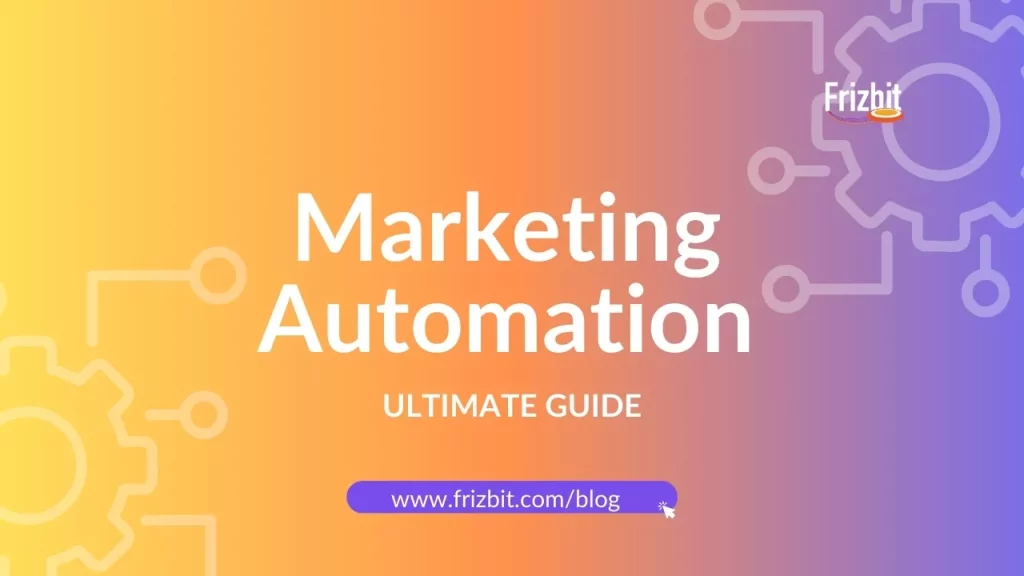
Marketing automation is a powerful combination of software, strategy, and customer-centricity that leverages advanced technology to streamline marketing tasks, enhance operational efficiency, and deliver personalised customer experiences at scale.
Companies implementing marketing automation report a substantial increase in qualified leads and an impressive return on investment.
This guide provides a comprehensive overview and actionable insights into marketing automation. By understanding the basics, choosing the right tools, and effectively implementing and optimising your strategy, you can unlock the full potential of marketing automation for your business.
1. What is Marketing Automation?
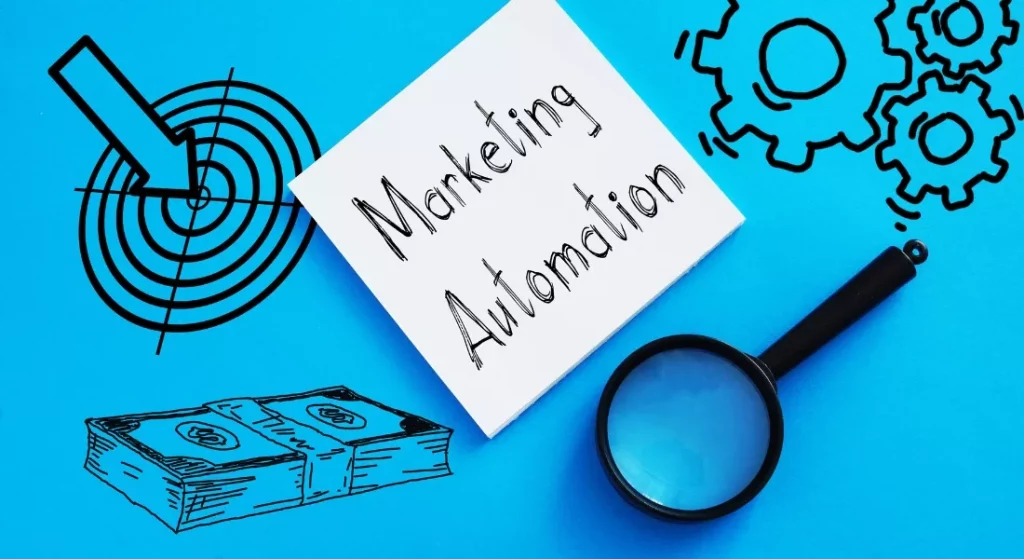
Marketing automation involves using sophisticated software to automate a wide range of marketing tasks, such as email marketing, social media posting, and ad campaigns. This technology not only streamlines operations but also enhances the precision and effectiveness of marketing strategies.
By automating repetitive tasks, marketing automation allows businesses to manage customer relationships more effectively, segment their audiences for targeted outreach, and measure the impact of their campaigns with detailed analytics.
Functions of Marketing Automation
Email Marketing Automation: Automates the creation, scheduling, and sending of personalised emails based on user behaviour, preferences, and engagement history. This ensures that each customer receives relevant content at the right time, improving open rates and conversion rates.
Lead Management: Tracks and manages leads throughout the full-funnel marketing, from initial contact to conversion. Automated lead scoring and nurturing processes ensure that high-potential leads are identified and engaged with personalised content and follow-ups.
Campaign Management: Enables the planning, execution, and analysis of cross-channel marketing campaigns. Automation tools can coordinate activities across email, social media, and other platforms, ensuring a cohesive strategy and consistent messaging.
Customer Segmentation: Divides customers into specific segments based on demographics, behaviour, purchase history, and other criteria. This allows for highly targeted marketing efforts that are tailored to the unique needs and preferences of different customer groups, resulting in more effective campaigns and higher engagement rates.
Analytics and Reporting: Provides comprehensive metrics and reports on the success of marketing activities. Detailed analytics help marketers understand what’s working and what’s not, enabling data-driven decisions that optimise campaign performance and ROI. Metrics can include email open rates, click-through rates, conversion rates, customer lifetime value, and more.
2. How Does Marketing Automation Work?

Marketing automation operates through the creation of workflows triggered by specific user actions or predefined criteria.
These workflows can automate various marketing tasks, such as sending emails, scheduling social media posts, scoring leads, and generating detailed analytics.
By employing these automated processes, businesses can ensure consistent, personalised, and timely engagement with their audience.
3. What is the difference between Marketing Automation and CRM?
Simply put, a CRM (Customer Relationship Management) system is where all your customer data and information are stored. This includes details such as names, phone numbers, email addresses, customer start dates, and other relevant data points.
On the other hand, marketing automation software leverages the information held within the CRM to personalise your communication. Every data point collected in your CRM fields can be used in marketing automation campaigns to create targeted and relevant messaging.
Think of the CRM as the backbone of your marketing automation efforts!
4. How to implement marketing automation in eCommerce?
Using marketing automation for your eCommerce business can significantly enhance your marketing efforts and drive sales.
Here are some smart ways to implement marketing automation in eCommerce:
Segmentation and Personalisation
Start by segmenting your customer base based on preferences, demographics, behaviour, and purchase history. Use automation tools to create personalised messages to increase the relevance of your communications and improving conversion rates.
Social Media Content Scheduling
Automate content uploading helps maintain a consistent social media presence and engage with your audience regularly to build brand awareness and foster customer relationships.
Welcome Series
Send personalised emails to introduce them to your brand. This approach helps create a positive first impression and fosters early engagement.
Abandoned Cart Recovery
Set up cart abandonment automated emails to remind customers who abandoned their shopping carts to complete their purchases. Include personalised product recommendations, reviews, and incentives like discounts to entice them back to your site.
Product Recommendations
Leverage marketing automation to provide personalised product recommendations, including product bundles, based on customers’ browsing and purchase history. Deliver these recommendations through email, on-site notifications, and retargeting ads to boost cross-selling and upselling opportunities.
Customer Retention
Create automated workflows to engage with existing customers and encourage repeat purchases. Send personalised offers, loyalty rewards, or exclusive content to keep customers interested and coming back.
Re-Engagement Campaigns
Remind inactive customers of your brand, showcase new products, or offer exclusive discounts to reignite their interest and encourage purchases.
Post-Purchase Follow-ups
Send automated emails to thank customers for their orders and request feedback. Include related product suggestions or ask for reviews to foster a positive customer experience and encourage advocacy.
Seasonal and Holiday Campaigns
Schedule promotional emails, social media posts, and targeted ads to reach your audience with timely and relevant offers during peak shopping seasons.
Customer Feedback and Surveys
Automate feedback requests and customer satisfaction surveys to gather valuable insights into customer experiences and preferences. Use this information to improve your products and services and enhance the full-funnel marketing.
5. Why Should You Implement Marketing Automation?
Implementing marketing automation offers a multitude of benefits and can have a substantial impact on your business’s bottom line.
This section will explore some key benefits of marketing automation and illustrate the positive business impact it can have on your business.
Benefits
- Increased Efficiency: Marketing automation automates repetitive tasks such as sending emails, scheduling social media posts, and managing campaigns. This leads to significant productivity improvements within marketing teams.
- Personalisation: By leveraging customer data, marketing automation delivers personalised content tailored to individual behaviour and preferences.
- Lead Nurturing: Automated lead scoring ensures that sales teams focus their efforts on prospects with the highest likelihood of conversion.
- Better Data Insights: With comprehensive analytics and reporting features, marketing automation provides in-depth insights into campaign performance and customer engagement.
- Enhanced Customer Experience: Ensures seamless, tailored interactions across channels, increasing satisfaction.
- Multi-channel Integration: Coordinates campaigns across email, social media, SMS, and more for consistent messaging.
- Efficient Sales and Marketing Alignment: Facilitates better collaboration between sales and marketing teams.
How it impacts your Business
Implementing marketing automation can lead to higher conversion rates, increased customer retention, and a better overall return on investment by making marketing efforts more targeted and efficient.
Companies that use marketing automation see an average 451% increase in qualified leads and 53% higher conversion rates.
Marketing automation helps businesses scale their marketing efforts, allowing for more comprehensive and effective campaigns without a proportional increase in workload.
How it impacts customers
Marketing automation significantly enhances the customer experience by providing personalised, timely, and relevant communications.
Customers receive tailored content that matches their preferences and behaviours. Additionally, seamless interactions across multiple channels create a consistent and cohesive experience, making customers more loyal to the brand.
6. Top Marketing Automation Software
Marketing automation software is essential for eCommerce to streamline and enhance their marketing efforts.
Here are some of the top platforms, their key features, pricing, and target customers:
- Frizbit
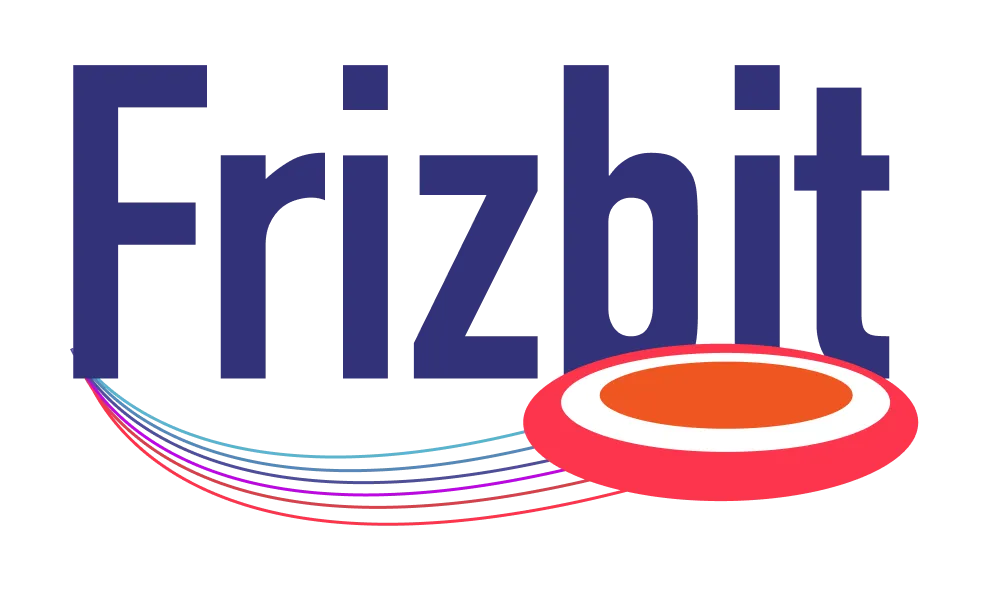
Frizbit is a cross-channel marketing automation platform designed to re-engage customers and enhance digital marketing efforts, making it a strong alternative to Klaviyo.
Main Features
- Intuitive Interface: Drag-and-drop editor for crafting branded and creative designs.
- Hyper-Personalisation and Bulk Sending: Advanced personalisation for individual user experiences and large volume messaging.
- No Technical Skills Required: Easy integration and adaptation without the need for coding skills.
- Unlimited Automation Capabilities: Supports various automated campaigns, including retargeting, upselling, and cart abandonment messages.
- AI-Powered Recommendations: Uses AI to offer tailored recommendations based on user behaviour, enhancing engagement.
Differentiator: Combines hyper-personalisation with a user-friendly interface and AI-driven recommendations focused on eCommerce needs.
Pricing: Frizbit offers a flexible pricing model based on monthly traffic system, For example, sending 100,000 emails costs $99 with Frizbit. You can start by requesting a free demo.
Target Customer: Frizbit is designed for all-size eCommerce businesses, providing tailored solutions to streamline digital marketing efforts without relying heavily on development resources. It enables effective scaling in the competitive online landscape, driving sustained growth and success.
- Braze
Braze is a customer engagement platform that unifies customer interactions with real-time data and delivers customized messaging across various communication channels.
Main Features:
- Messaging Channels: Customizable Emails, Web and Mobile Push notifications, SMS, MMS, WhatsApp campaigns, and In-App messaging.
- Analytics and Insights: Braze Canva provides detailed analytics to track campaign performance.
- Journey Orchestrations: Tools to improve customer experience through personalized journeys.
- Sage AI: AI-powered personalization and task automation.
Differentiator: Customization options and third-party integrations managed via APIs.
Pricing: Braze uses a user-based pricing model tailored to each client’s needs. Pricing depends on active monthly users, features, message volume, support level, and integration usage, contributing to potentially high overall costs.
Target Customer: Braze is best suited for financial services, media entertainment, travel & hospitality, retail, and eCommerce industries. It may not be ideal for businesses lacking technical support or those needing a more user-friendly interface.
- ActiveCampaign

ActiveCampaign combines email marketing with automation and CRM features, offering a solution for personalised email, automation, and sales engagement.
Main Features
- Automation: Extensive automation workflows for email, SMS, and site messaging.
- CRM Integration: Built-in CRM for managing sales pipelines and customer interactions.
- Personalised Messaging: Dynamic content and conditional logic for personalised experiences.
- Segmentation and Targeting: Powerful segmentation tools for tailored messages.
- Detailed Reporting: In-depth analytics on campaign performance and customer behaviour.
Differentiator: Integration of CRM with email and automation capabilities.
Pricing: ActiveCampaign’s pricing starts at $15/month for 500 contacts on the Starter Plan. The Plus Plan is $70/month, and the Professional Plan starts at $187/month for 500 contacts.
Target Customer: ActiveCampaign targets small to mid-sized businesses needing comprehensive email marketing and CRM solutions, especially in eCommerce, technology, education, agencies, and travel services.
- GetResponse
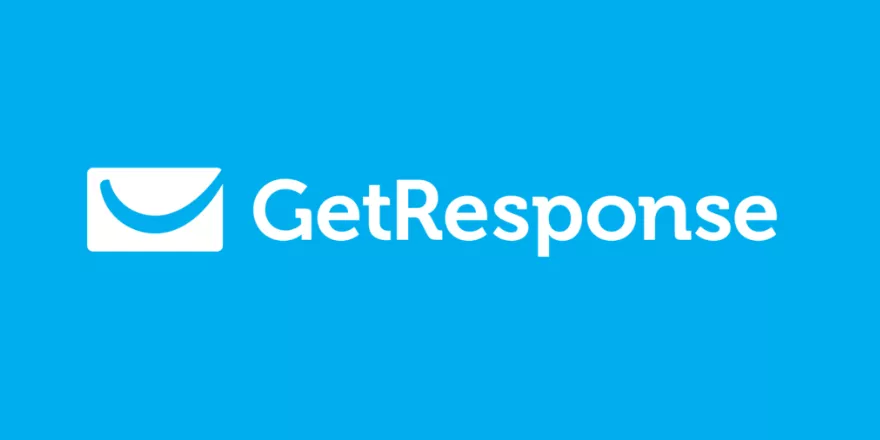
GetResponse is a marketing platform offering tools for email marketing, automation workflows, landing page design, and more.
Main Features
- Email Marketing: Easy-to-use email builder with templates and drag-and-drop functionality.
- Marketing Automation: Advanced workflows for automating email sequences and customer journeys.
- Webinars and Landing Pages: Integrated tools for hosting webinars and creating landing pages.
- Conversion Funnels: Tools for creating sales and lead generation funnels.
- Analytics and Reporting: Comprehensive analytics to track and optimise campaign performance.
Differentiator: Integration with eCommerce platforms and support for webinars.
Pricing: GetResponse offers a tailored plan for email marketing at $13.1/month. Additional plans with more features are available at higher prices.
Target Customer: GetResponse caters to small to medium-sized businesses, enterprises, and eCommerce companies looking to optimise their marketing strategies with comprehensive automation tools.
- Omnisend

Omnisend is a marketing automation platform designed for eCommerce, integrating communication channels to streamline marketing efforts.
Main Features
- Ecommerce-Focused Features: Includes discount coupon codes and product listings.
- Free Plan: Access to almost all features, including automation splits and personalised recommendations.
- Segmentation: Advanced audience segmentation capabilities.
- Multi-Channel Messaging: Supports email, SMS, and web push notifications.
Differentiator: Tailored for eCommerce with multi-channel messaging capabilities.
Pricing: Omnisend offers three plans: Free (250 contacts, 500 emails/month), Standard ($16/month for 500 contacts, 6,000 emails/month), and Pro ($59/month for 2,500 contacts, unlimited emails).
Target Customer: Omnisend is for online stores that need a comprehensive email marketing tool tailored for eCommerce.
- Klaviyo
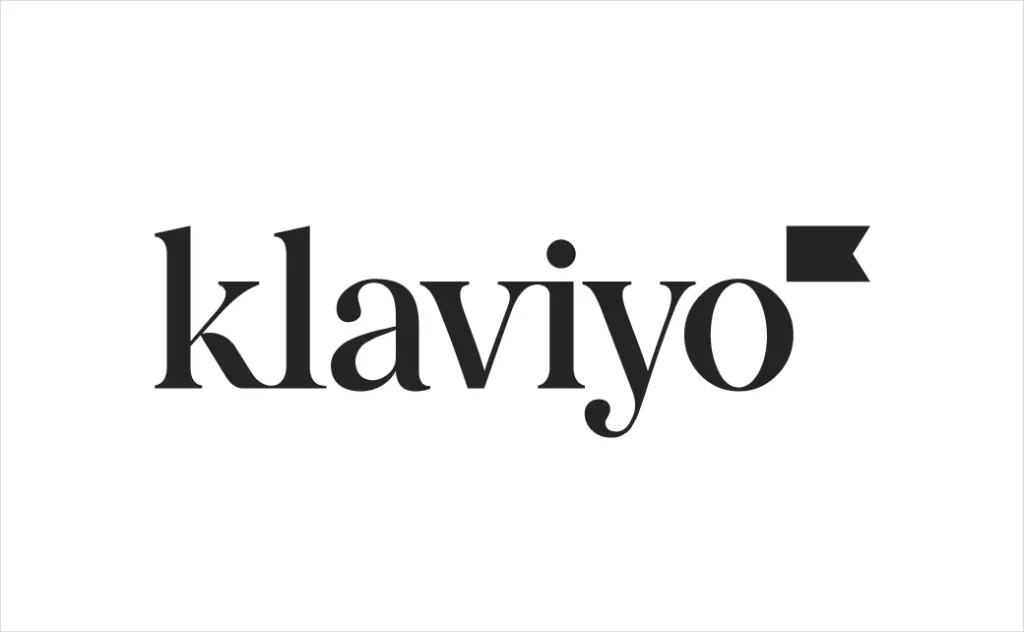
Klaviyo is a marketing automation platform that integrates with eCommerce platforms, providing email and SMS marketing capabilities.
Main Features
- A/B Testing: Test email subject lines, copy, and forms for optimisation.
- User-Friendly Interface: Easy to create and manage email campaigns.
- Drag-and-Drop Editor: Dynamic product recommendations in emails.
- Industry Benchmark Data: Provides benchmark data to measure campaign performance.
- Built-in CDP: Combines customer data from various sources.
Differentiator: Integration with eCommerce platforms and A/B testing capabilities.
Pricing Klaviyo offers three subscription plans based on active profiles. The starting price is $45 for sending 15,000 monthly emails based on 1,001 – 1,500 active profiles.
Target Customer Klaviyo is suited for eCommerce businesses, offering scalable solutions and seamless integration with eCommerce platforms.
- Salesforce
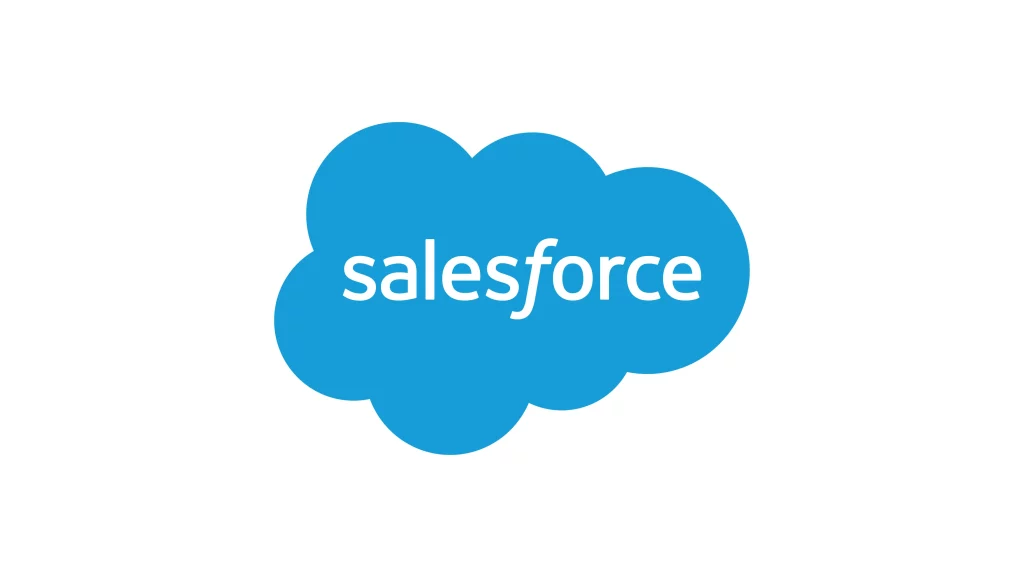
Salesforce Marketing Cloud is a marketing automation platform that integrates with Salesforce’s broader CRM ecosystem, enhancing the ability to manage customer relationships.
Main Features:
- Journey Builder: Create and optimize customer journeys across email, mobile, social, advertising, and the web.
- Email Studio: Design, personalize, and optimize email marketing campaigns.
- Mobile Studio: Engage customers through SMS, push notifications, and group messaging.
- Social Studio: Manage social media marketing and engagement.
- Advertising Studio: Tailor advertising campaigns based on customer data.
- Analytics Builder: In-depth analytics and reporting to measure campaign performance and customer behaviour.
Differentiator: Integration with Salesforce CRM for a unified view of customer interactions.
Pricing: Salesforce Marketing Cloud pricing is customized based on business needs, user count, and selected features. The pricing is scalable to accommodate businesses of various sizes.
Target Customer: Salesforce Marketing Cloud targets mid-sized to large enterprises across various industries, including retail, finance, healthcare, and manufacturing. It’s ideal for businesses seeking an integrated CRM and marketing solution.
7. How to Enhance Marketing Automation with AI
Integrating AI with marketing automation can significantly enhance the precision and impact of your marketing efforts, making them more responsive and tailored to individual customer needs.
Here are 4 key ways AI can elevate your marketing automation:
- Predictive Analytics: AI can analyse past data to predict future customer behaviour, enabling more targeted and proactive marketing strategies. This foresight allows businesses to anticipate customer needs and tailor their marketing efforts accordingly, improving conversion rates and customer satisfaction.
- Personalised Content: AI helps in creating and delivering content that is highly personalised based on individual user data. By analysing user preferences and behaviour, AI can recommend products, craft personalised messages, and deliver them at optimal times, resulting in higher engagement and loyalty.
- Chatbots and Customer Interaction: AI-powered chatbots can handle customer inquiries, provide instant support, and engage with visitors in real-time. This not only improves customer satisfaction by offering immediate assistance but also frees up human resources for more complex tasks.
- Advanced Data Insights: AI can process large datasets to uncover trends, patterns, and insights that might not be immediately apparent. These insights can inform marketing strategies, optimise campaigns, and identify new opportunities for growth.
By leveraging AI in marketing automation, businesses can enhance their marketing efforts’ accuracy and effectiveness, ensuring that interactions are more personalised, timely, and relevant.
8. Final Thoughts
Marketing automation is a transformative tool that can significantly enhance your marketing efforts. By automating repetitive tasks, personalising customer interactions, and leveraging data insights, businesses can achieve greater efficiency and effectiveness. As technology evolves, incorporating AI will further amplify these benefits, providing even more sophisticated capabilities.
Investing in marketing automation can lead to substantial improvements in your marketing performance, allowing you to reach and engage your audience more effectively.
FAQ: Marketing Automation
Q:What do you mean by marketing automation?
A: Marketing automation uses software to automate marketing tasks like emails and social media posts, improving efficiency and personalisation.
Q: What is CRM and marketing automation?
A: CRM manages customer relationships, while marketing automation streamlines marketing tasks. Together, they enhance customer engagement and optimise marketing strategies.
Q:Why is marketing automation important?
A: It increases efficiency, personalises interactions, and provides valuable data insights, leading to better engagement and higher conversion rates.
Q: What is marketing automation in AI?
A: AI enhances marketing automation by providing predictive analytics, personalised content, chatbots, and advanced data insights, making marketing more effective.
Q: Does marketing automation really work?
A: Yes, it streamlines marketing efforts, improves engagement, and achieves better results through automation and data-driven insights.
